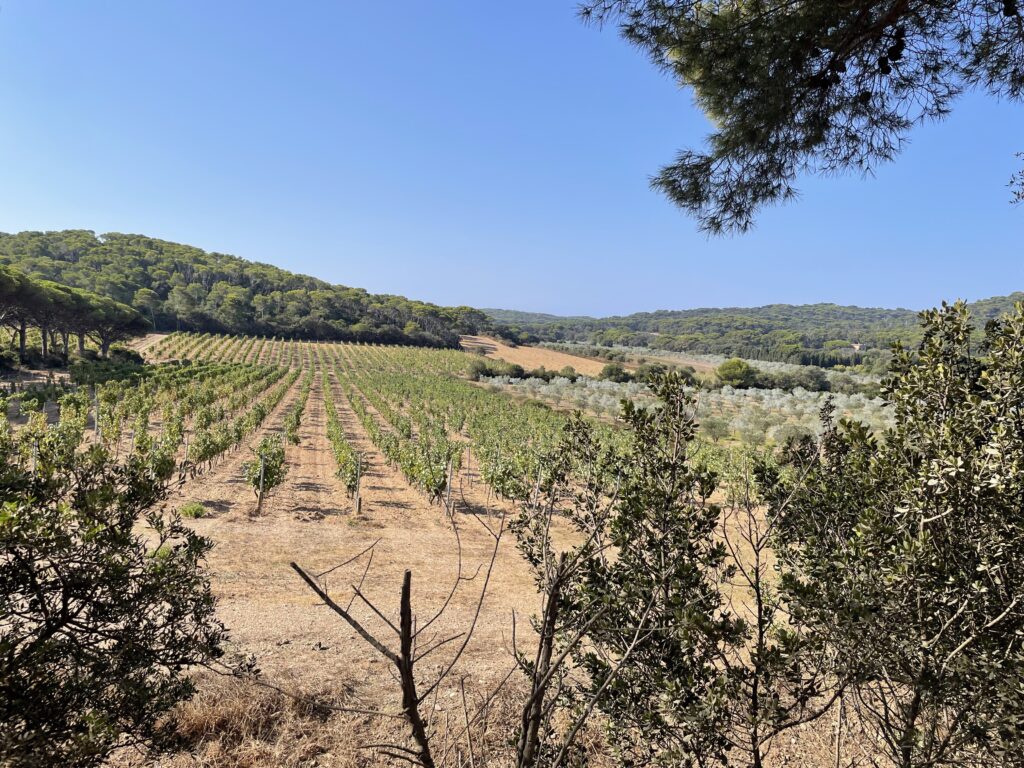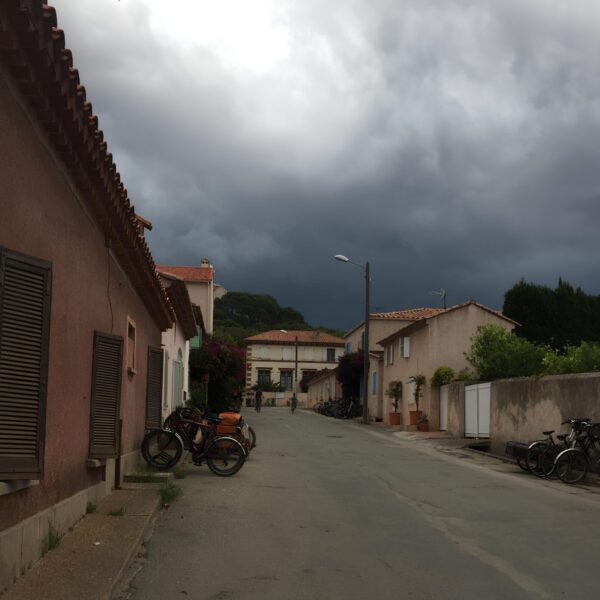All regions of the world are not equally affected by climate change. And the Mediterranean, enclosed and shallow, is one of the most impacted areas, as explained by MedECC (Mediterranean Experts on Climate and environmental Change), the Mediterranean equivalent of the IPCC. Among its founders, the eminent researcher Joël Guiot advocates for global solutions that include emission mitigation, adaptation, but also the preservation of resources and biodiversity. Without overlooking social and economic issues.
The world is warming. And the Mediterranean even more so. “The Mediterranean basin is one of the regions most sensitive to climate change,” insists MedECC, the Mediterranean equivalent of the IPCC, in its communications aimed at decision-makers and citizens. Compared to 1850, the time of the industrial revolution, the average temperature in this region of the world has increased by 1.54°C, which is 0.4°C higher than the global average. And if nothing is done, we should expect an amplification of the phenomenon with a rise of up to 5.6°C in temperatures on land compared to the end of the 20th century, with “quasi-permanent tropical summer temperatures.”
The cause: the enclosure of the Mediterranean and its lesser depth mean that the water warms faster than that of the oceans. As a result, it is no longer rare for the Mediterranean Sea to approach 30°C, causing significant damage to marine biodiversity and the sea's ability to absorb CO2. This rise in marine temperatures also translates into higher temperatures on land, hence the increasingly intense and frequent heatwaves and droughts. With access to water severely compromised in some areas.
At the same time, extreme weather events are multiplying, with severe flooding. These are exacerbated by the massive artificialization of soils in highly urbanized coastal regions: water runs off instead of infiltrating the ground.
Additionally, the MedECC report highlights various forms of pollution (water, air), as well as the rise of invasive species. Furthermore, the overexploitation of resources, such as forests or fish, where 20% of species are expected to disappear by 2050.
Complex solutions are the best
In the face of these simultaneous and mutually reinforcing difficulties, the solutions implemented tend to address only one problem at a time, laments Joël Guiot, paleoclimatologist (CEREGE, CNRS) and co-founder of MedECC. “And when we only want to solve one problem at a time, we often generate another. For example, if we rely solely on irrigation in the face of drought, the water supply can lead to soil salinization,” while also generating conflicts over the use of this resource.
Hence the importance, he asserts, of more complex solutions that simultaneously address several issues. “Solutions that help adapt to climate change while mitigating our greenhouse gas emissions and preserving biodiversity are optimal solutions.” These are also referred to as “integrated solutions.” Agroecology is a good example as it allows for carbon storage in the soil through the use of manure instead of chemical fertilizers, preserves biodiversity, while consuming less water than industrial agriculture. The researcher also cites the example of areas where it has been decided to let the sea in rather than stubbornly pushing it back with dikes. Dunes then form that act as a buffer between the sea and urban areas, while providing a refuge for biodiversity.
Socio-economic inequalities between the northern and southern shores
A good solution must also take into account the economic and social context. In the Mediterranean basin, this context is marked by significant inequalities between the northern and southern shores, and even within states themselves. “The wealthy countries are the main contributors to greenhouse gas emissions, the consequences of which are extremely serious for the most vulnerable,” points out Joël Guiot, who advocates for certain coercive measures, for example regarding private jets.
The issue of inequalities also raises the question of the dominant economic model: a capitalist, productivist model that the Club of Rome already deemed physically incompatible with respecting planetary boundaries back in 1972. “Degrowth, we will inevitably reach it,” believes the researcher, aware that the term provokes strong reactions. However, he reminds us that degrowth only refers to a decrease in Gross Domestic Product. This indicator has become the compass for public policies despite its many limitations, notably the failure to account for the negative impact of certain activities. For instance, deforestation activities contribute to GDP growth while destroying part of natural heritage, biodiversity, and the loss of a common space; destructions that are not taken into account. Furthermore, GDP excludes from its calculation many non-market activities that are essential. “We need to produce less, but better. Society must produce what it needs to live, to be educated, and to be healthy.” Prioritizing a growth in quality of life for the greatest number, rather than stubbornly trying to boost GDP at all costs.
Encouraging action
It remains to convince leaders to adopt these multifaceted solutions. This is what MedECC is working on, with its report being reviewed and approved by the various governments of Mediterranean countries. Governments that are not always very aware of the issues, which maintain relationships that can prove to be conflictual. And that must be handled with care.
They must also be convinced to make decisions that may not be immediately understood by citizens, requiring a demonstration of pedagogy. “On the Giens peninsula, in Var, the Coastal Conservatory broke down rock formations to let the sea in. Initially, people were not happy. They felt that the sea would invade them. But they realized that this decision allowed them to regain a place to walk along the shore.”
But often, it is citizens who drive the desire to act. Hence the summary of the MedECC report that is addressed to them. These citizens also influence companies, which are increasingly limiting their negative externalities, or even rethinking their economic models to make them more compatible with planetary boundaries.
Joël Guiot also believes strongly in the role of women. “In the Mediterranean, most solutions come from them, he notes. Organic businesses are predominantly run by women. They also play a crucial role in education and transmission.

Featured Photo: Extreme weather events are multiplying © DR
